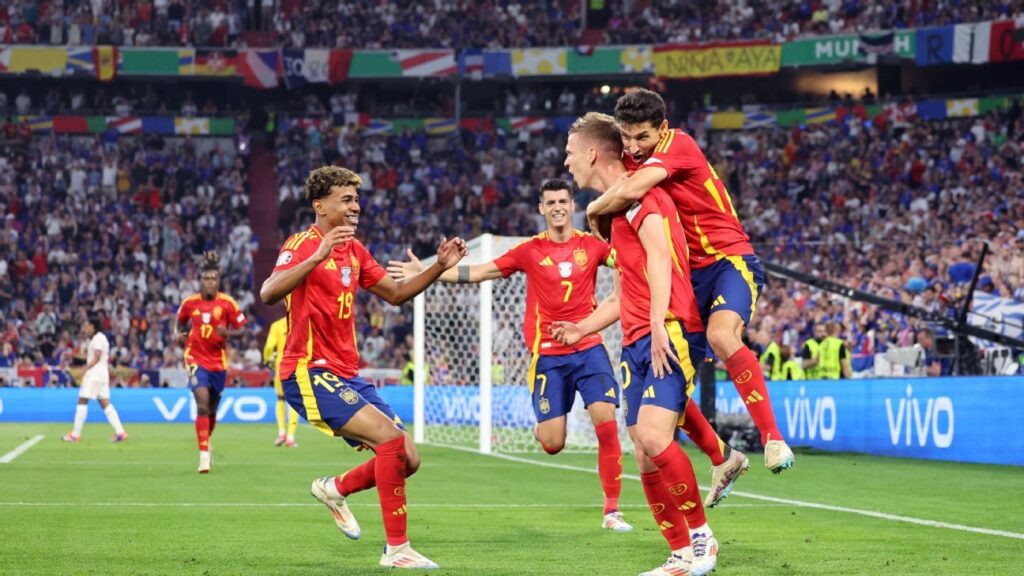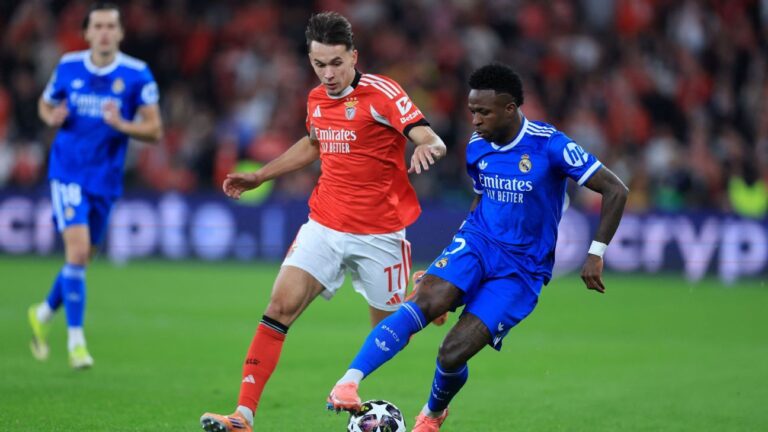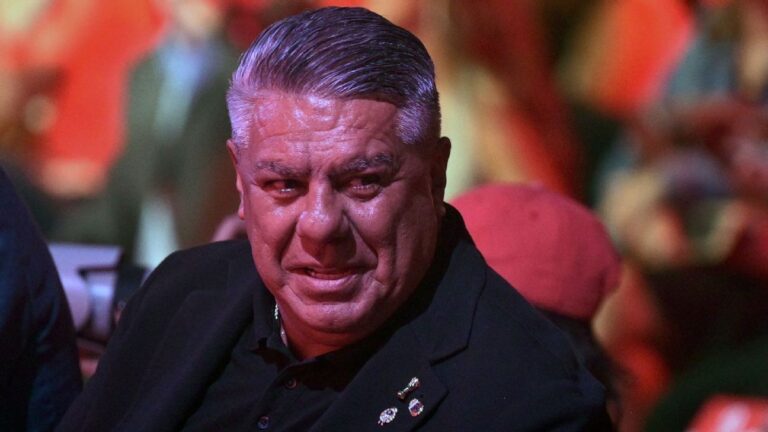MUNICH — The last time Spain were in a major tournament final was 12 years and eight days ago. All but one of the XI starters who demolished Italy in Kyiv to win Euro 2012 that day played for either Real Madrid or Barcelona. And those were peak El Clasico times too: Pep Guardiola vs. Jose Mourinho, European trebles and 100-point seasons, Lionel Messi vs. Cristiano Ronaldo.
Most had been part of the Euro-winning 2008 side and the World Cup-winning 2010 side, too. They were battle-hardened superstars, rival factions who put their differences aside to take on the world, a bit like superheroes who team up in a fantasy comic book crossover series. In other words, they were stacked.
The Spain side who, on Sunday, could win a European Championship of their own are the photo-negative of that. More a misfit outfit than masters of the universe. More no-name taggers than patrician artists. More misunderstood geniuses than feted elites.
Barcelona and Real Madrid were represented in the lineup that toppled France 2-1, but only barely: 34 year old Nacho, technically not even a Madridista anymore since his contract expired and he’s now heading for a final pay day in Qatar, and Lamine Yamal, the 16-year-old Barca sensation who scored the sort of statement goal you will see again and again on social media (so will your kids and grandkids … it was that special). Indeed, France had more combined Real Madrid/Barca players in their XI, if you count Kylian Mbappé.
And yet, here Spain are. They might not be much in terms of pedigree and star power (other than Rodri, the Manchester metronome, and Yamal, who is well on his way), but they’ve arguably had the toughest run to the final, beating both pedigreed opponents (France, Croatia, Italy, Germany) and rank underdogs (Albania, Georgia). And doing it all without needing to go to penalties and while playing — by some margin — the best football in the tournament.
They also have a coach who fits this group of players, just as the 2012 coach, Vicente Del Bosque — who had already a won World Cup and two Champions League titles — fit that one. Luis de la Fuente looks like a substitute teacher with nerd glasses, the sort kids gleefully torment. He has never managed in first- or second-tier club football. For the past 12 years he has been working for the Spanish FA in various coaching roles, moving up through the age groups. At 61, he wasn’t appointed to replace Luis Enrique after the Qatar World Cup because he was regarded as some rising coaching mind. He was appointed because he already had a job with the FA.
He strikes you as the kind of guy who gets on with things, who folds his napkin and pushes his chair in after a meal, who takes each day as it comes. Half his starting defence (Dani Carvajal and Robin Le Normand) was suspended for this game, so he made do with the old warrior Nacho and the even older warrior Jesús Navas. He’s 38 and his task for this game was Mbappé. When Mbappé froze Navas and dinked that cross for France’s opener, you feared what might come. But Navas grew into the game, even as Mbappé started to wane.
Pedri, injured early against the Germans, was replaced by Dani Olmo. He’s a former Barcelona youth product who made headlines when, at 16, he chose to move to Croatia and Dinamo Zagreb to further his football development. Right choice? We might never know, because he has been injured most of his career: in the past five seasons since joining Leipzig he has started more than 17 league games just once. But he was the right choice for De la Fuente on the night: his movement between the lines disrupted France’s buildup and he was responsible for Spain’s second goal.
Guys like Olmo make this Spain team not just successful but likable, too. Talent, yes, but plenty of imperfections as well. Much like Fabián Ruiz, who made his name at relative second-tier clubs like Real Betis and Napoli before finally landing that gig in the spotlight at Paris Saint-Germain two years ago. Or Marc Cucurella, turfed out of Barcelona at 21, who remade his career at Brighton only to then become a punchline at Chelsea in his first 18 months there (before recovering somewhat late last season).
Then there’s Álvaro Morata, the most star-crossed of them all. Tall, handsome, athletic, fast, powerful, skillful, he should have been the next big thing at Real Madrid. Instead, he has had an itinerant career in which he has looked good and scored goals for big clubs but never quite added up to the sum of his parts. Which might explain why Atletico Madrid are looking to move him on. Again.
De la Fuente took this motley crew and did a handbrake turn from the Luis Enrique era. Gone was the possession football with passers masquerading as wingers; in came his two young roadrunners, Nico Williams on the left and Yamal on the right and, with them, the ability to suddenly penetrate the opposition defence, something previous sides lacked. Gone too was some of the eccentricity that was part and parcel of the Luis Enrique way, from the convoluted answers in news conferences to the nightly Twitch streams he put on in Qatar. De la Fuente keeps things simple and plays to his strengths rather than to some big philosophical idea.
It helps, of course, that Spain didn’t go into this tournament as favorites, an inevitable consequence of the injuries racked up by stars (Gavi and Alejandro Balde the two obvious ones) who would otherwise have been fixtures.
It helps too when Yamal does what he did. Against the previously impregnable French barricades, he pulled the proverbial rabbit out of the hat, showing the sort of confidence and self-assurance you expect from been there/done that superstars, not guys more than a year away from being allowed to vote. With Spain a goal down and the prospect of France being able to play in transition — where they’re most comfortable — the rest of the way it was his strike that turned it and only reinforced De la Fuente’s message: “It’s all level now, let’s just keep doing what we do.”
So much for the idea that experience makes you unflappable. Or that pedigree matters. Spain’s most accomplished star — Rodri aside — is Yamal, a guy who hasn’t even finished writing the preface of his biography.
De la Fuente’s Spain are reminding us that once you cross that white line on to the pitch, you leave your résumé behind. And all that matters is what’s in your heart and your head. And what you can do with your feet. Which in Spain’s case is plenty.




